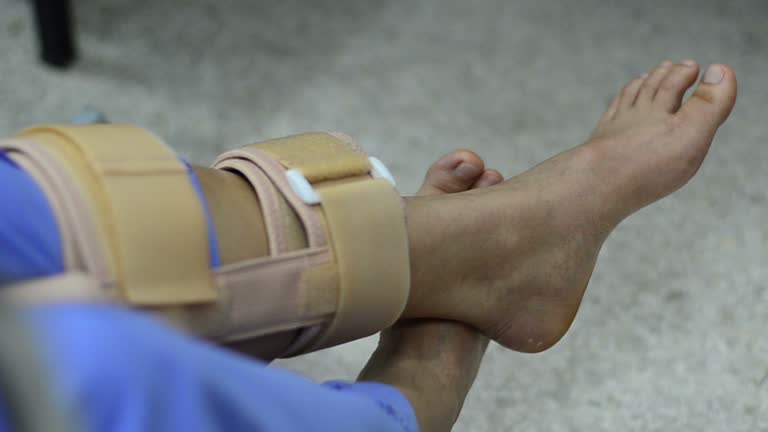Suffering an injury on the job can be overwhelming and stressful. From lost wages to medical bills and job uncertainty, it’s crucial to understand your legal rights and take immediate action to protect yourself. Whether you slipped on a wet floor, suffered from repetitive strain, or were injured by faulty equipment, knowing what to do next can make all the difference.
If you’ve been injured at work, here’s how to handle it—from immediate steps and medical care to navigating insurance claims and returning to work safely.

Ready to connect with top legal professionals? Get immediate support— Call us at 877-550-8911.
Connect with Our Legal Team
Immediate Steps to Take After an Injury
Your health comes first. If you’re injured at work—even if it seems minor—seek medical attention immediately. Not only can prompt care prevent complications, but it also provides necessary documentation for your workers’ compensation claim.
After that, report the incident to your supervisor or manager. Injured at work? Here’s how to handle it:
- Clearly describe what happened (date, time, location, and injury details).
- Ask a coworker to assist if you’re unable to report it yourself.
- Take photos, gather witness statements, and keep copies of everything.
Documenting your injury thoroughly ensures you have a strong foundation for any claims or legal action you might pursue.
Reporting the Incident to Your Employer
Reporting the incident isn’t just a suggestion—it’s often legally required. The sooner your employer knows about the incident, the better. Most states require you to notify your employer within 30 days, though some deadlines are shorter.
Here’s how to report it properly:
- Inform your supervisor both verbally and in writing.
- Request and fill out your company’s injury or accident report form.
- Keep a copy of any written documents you submit or receive.
This step is essential for initiating the workers’ compensation process, and it also demonstrates that you acted in good faith.
Seeking Medical Attention and Keeping Documentation
Even if the injury feels minor, a medical professional should evaluate you. Describe every symptom in detail, even if it feels unrelated. Some workplace injuries, like concussions or soft tissue damage, can worsen over time.
Keep these records:
- Initial medical evaluation and all follow-ups
- Test results, imaging, and diagnoses
- Copies of prescriptions and treatment plans
Also, document conversations with doctors and HR. These notes can be valuable if your claim is challenged or delayed.
Navigating Workers’ Compensation Claims
Every state has its own workers’ compensation laws, but most cover medical bills, lost wages, and rehab costs. Once your injury is reported and documented, you can begin the claims process.
Steps to file a claim:
- Complete the necessary state or employer forms.
- Submit medical documentation.
- Track deadlines—missing one could jeopardize your claim.
Visit the U.S. Department of Labor’s Workers’ Compensation page for federal guidelines. For local help, contact your state’s labor board.
If your claim is delayed or denied, don’t give up. Consult with a qualified attorney experienced in workers’ compensation claims to review your case.
Legal Case Review offers a free evaluation and can connect you with legal professionals near you.
Dealing with Insurance Companies
Unfortunately, insurance companies may try to minimize payouts. They may ask misleading questions, request unnecessary documents, or downplay your injuries.
Here’s how to protect yourself:
- Be cautious in communications—your statements can be used against you.
- Never exaggerate or guess about your injury; stick to facts.
- Keep all correspondence, including emails and phone logs.
If you believe your benefits are being denied unfairly, contact a workers’ compensation attorney. They understand how to navigate disputes, appeals, and settlements effectively.
Returning to Work After an Injury
Getting back to work isn’t just about clocking in—it’s about doing so safely and on your terms.
Steps to follow:
- Consult your doctor to ensure you’re fit to return.
- Request a written statement outlining your work restrictions.
- Discuss accommodations with your employer, such as modified duties or shorter hours.
You may be eligible for temporary partial disability benefits if you’re returning in a limited capacity. If your employer refuses to accommodate restrictions, speak to an attorney or file a complaint with your state labor office.
 Preventing Future Workplace Injuries
Preventing Future Workplace Injuries
Once you’re back at work, your experience can help shape a safer environment. Advocate for:
- Regular safety audits
- Training programs for new and current employees
- An open-door policy for reporting hazards
Employers are legally required under OSHA guidelines to provide a safe work environment. You can learn more at
OSHA’s official website.
If your workplace is ignoring safety concerns, document everything and consider filing a formal complaint.
Frequently Asked Questions (FAQs)
Q1: What should I do immediately after a workplace injury?
A: Seek medical attention, report the injury to your employer, and begin documenting everything related to the incident.
Q2: Can I choose my own doctor for a work injury?
A: It depends on your state. Some states require you to visit a provider chosen by your employer. Check your state’s workers’ compensation rules.
Q3: What benefits does workers’ compensation provide?
A: Typically, it covers medical expenses, a portion of lost wages, rehabilitation, and disability benefits.
Q4: What if my employer doesn’t report my injury?
A: You can file a claim directly with your state’s workers’ compensation board. It’s also a good idea to contact a lawyer for guidance.
Q5: Can I be fired for filing a workers’ compensation claim?
A: Retaliation for filing a claim is illegal. If it happens, contact an employment law attorney immediately.
Final Thoughts
Injured at work? Here’s how to handle it: take swift action, stay informed, and seek legal help if needed. Understanding your rights can ensure you get the medical care, compensation, and workplace accommodations you deserve.
Don’t navigate this process alone. Visit
Legal Case Review to explore your legal options and get a free case evaluation today. For trusted federal guidance, visit the U.S. Department of Labor or
OSHA.
Don’t wait to secure the legal representation you deserve. Visit Legal Case Review today for free quotes and tailored guidance, or call 877-550-8911 for immediate assistance.

 Preventing Future Workplace Injuries
Preventing Future Workplace Injuries


